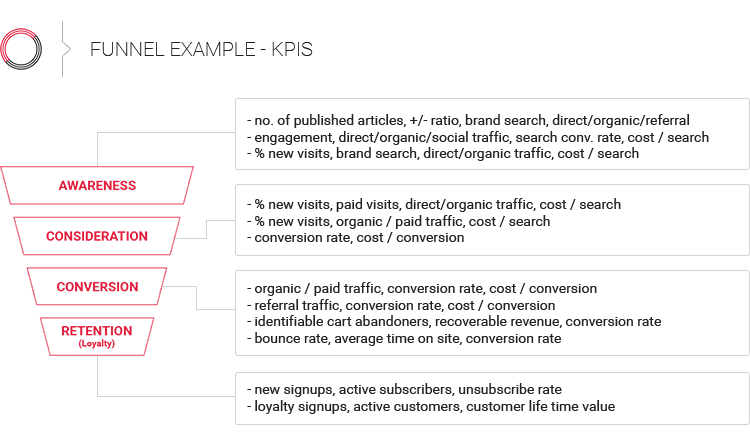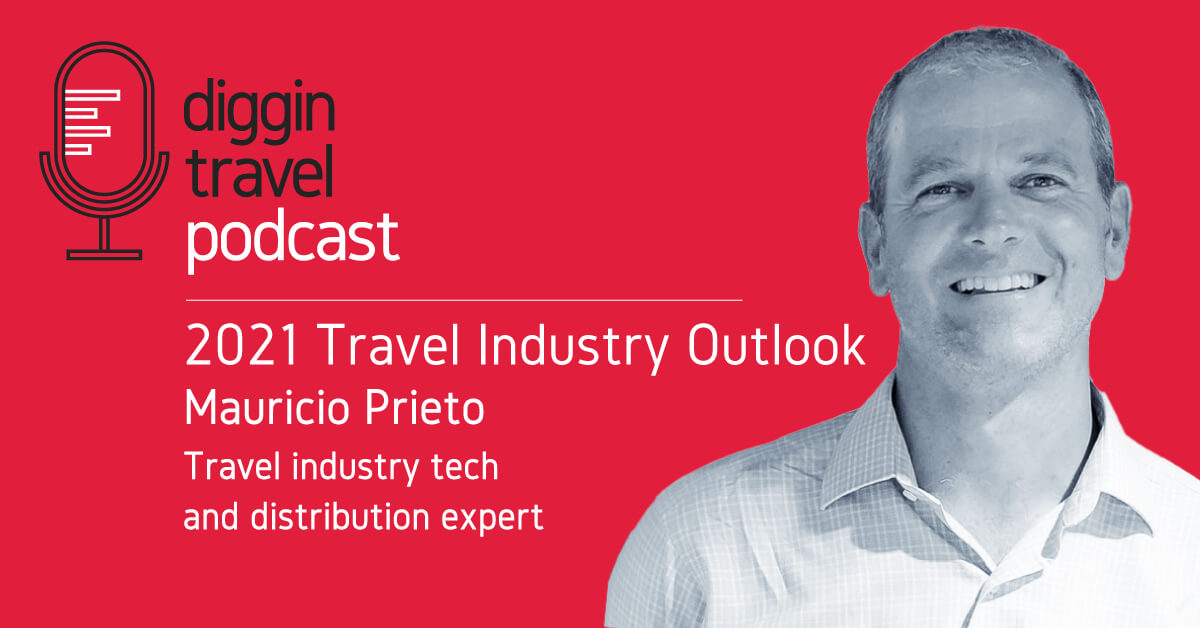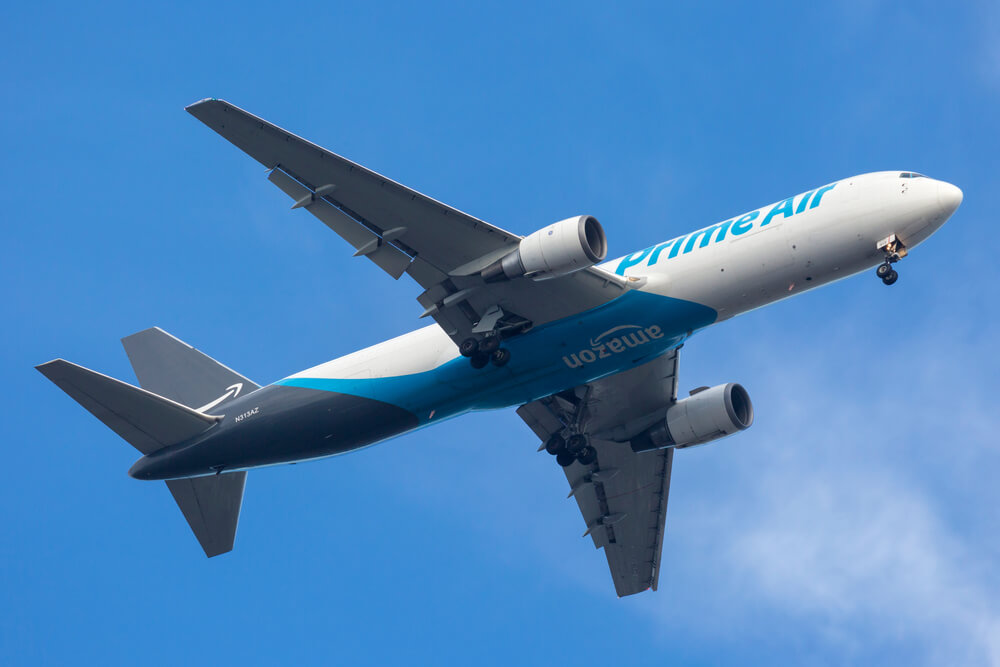Select Sidearea
Populate the sidearea with useful widgets. It’s simple to add images, categories, latest post, social media icon links, tag clouds, and more.


hello@youremail.com
+1234567890
+1234567890
Populate the sidearea with useful widgets. It’s simple to add images, categories, latest post, social media icon links, tag clouds, and more.


Iztok Franko

When I was thinking about what the first article and podcast in 2021 should be, the choice was quite easy. It had to be the 2021 travel industry outlook – more specifically, a look into the future of travel distribution.
Why?
The first reason is that everybody is intrigued with how the future of travel distribution and retailing will look, especially in the post-pandemic world.
The second reason is, when I looked back to find out what was the most popular topic in 2020, one podcast and article popped out. The topic that intrigued all of you the most last year was the talk about the future of airline and travel distribution with Nina Wittkamp from McKinsey. Last year, in their report “Where is the Value in Airline Retailing,” McKinsey identified these future travel distribution and retailing scenarios that made a lot of airline people think:
This report was done before COVID-19 turned the travel industry upside down, but I think the questions about the future of travel distribution are now even more relevant. If anything, we saw that COVID-19 accelerated the change and disrupted many industries and markets.
So, what is the 2021 travel industry outlook?
Will airlines like AirAsia evolve into travel retailing platforms? Are Online Travel Agencies (OTAs) the ones that will remain the leaders in travel digital retailing? Or will a true retailer, a true digital marketplace like Google or Amazon disrupt the travel distribution landscape?
To answer all these questions, I talked to a travel visionary: expert in travel distribution and travel tech Mauricio Prieto. Mauricio was one of the co-founders of eDreams, one of the biggest OTAs in Europe. Now he is a consultant and advisor to the travel ecosystem and author of an insightful travel newsletter in Travel Tech Essentialist. In his newsletter, Mauricio regularly sheds light on travel tech and the distribution landscape.
Listen to the new episode of the Diggintravel Podcast on the 2021 Travel Industry Outlook [Retailing and Distribution], or read on for key highlights from our talk with Mauricio:
And don’t forget to subscribe to the Diggintravel Podcast in your preferred podcast app as we will continue to provide you with more content on the 2021 travel industry outlook.
Before we started our talk with Mauricio about the future of travel distribution and retailing, I had to ask him about the travel industry outlook in general. 2020 was a terrible year for our industry; however, vaccination is finally starting across the world.
I’m optimistic. I’m generally optimistic on how the year is going. We should all be thanking every scientist and doctor that has made the miracle of giving us a vaccine in such a short period of time. Unfortunately, now it’s in the hands of bureaucrats and politicians to roll it out, so that’s a reason to be worried. But let’s hope that things will be working smoother and the most at-risk population first will be vaccinated, and then everybody else. Again, I’m optimistic on the outlook of travel. We have yet to find an alternative to leisure travel. I think leisure travel will come back in full, full, full force.
In one of his newsletters, Mauricio wrote about Boston Consulting Group’s prediction that travel will not come back to 2019 levels until 2024. Yet both he and I are more optimistic about the recovery:
I think there’s clearly a latent demand for travel. People have also forcibly had to save some money because they haven’t traveled. Unfortunately, people have lost their jobs as well. So that’s something to take into account that will impact travel. But there will be travel. Travel doesn’t mean taking a flight and flying for 10 hours; travel is being redefined, and now it means in many cases driving and going somewhere close. The expectation of travel, at least leisure travel, coming back in full force – it just responds to human nature. People have that need to connect with other people, to disconnect from daily life, and to go to places. Another question which I’m sure that you know a lot better than I do – there’s also a question of the supply side. Airlines cannot just, from one night to the next morning, reconnect every single aircraft. So I think it will take time for the supply side of things to get back into business, and that will be more gradual.
The pandemic that happened in 2020 was a black swan event that disrupted and reshuffled the cards in many industries. This is why I wanted to dig into the travel distribution landscape and travel tech space with Mauricio, as they are very interconnected. As you could see with the McKinsey scenarios, there were a lot of questions about how travel distribution will evolve, even before the pandemic happened.
So, my logical question was: what kind of impact will the pandemic have on the travel distribution landscape?
I think in terms of travel distribution, the travel world and the products are becoming a lot more complicated and complex. Before, whenever you stayed somewhere, you’d just look for a hotel. Now there’s all sorts of different types of accommodation. It’s not realistic to expect that consumers will be experts in the different kinds of accommodations that exist and to put it to them to know where to book those different types of accommodations.
I think the large platforms like Booking or Expedia have done a good job at moving from ‘we allow you to reserve hotels overnight’ to ‘we give you options to stay, and not necessarily overnight; sometimes it’s 3 hours during the day.’ They have made the transition. The whole jobs to be done approach is no longer ‘allow you to book hotels.’ It’s just ‘allow you to stay in a place, and not necessarily overnight.’ They have done a good job, and there’s a big need for that.
That is to say that when the product becomes more complex, there is a need for a retailer to put some order into that complexity and to allow you to compare apples to apples. Again, it would not be easy for the consumer to have to go to X, Y, or Z supplier depending on the type of accommodations they’re looking for. They want to go to one place, put the criteria they’re interested in, and then see what addresses those criteria.
So the product and then the criteria are also becoming more complex. Before it was just location and price. Now there’s also health considerations.
I agree with Mauricio that there is a lot of additional information that travelers need to consider now. In the past, metasearch engines, OTAs, and airlines focused on displaying schedule, availability, and price. Now, there are health and safety considerations, cleanliness, travel restrictions, and other information that needs to be provided to the traveler. In addition to that, accommodation and the mobility landscape have become much more complex.
What does this complexity mean for travel retail and the 2021 travel industry outlook?
There’s a lot of additional information, and whenever there is that complexity, I think it favors retailers. So I’m optimistic on the outlook of retailers, or the value that retailers bring.
But who are the retailers in travel that Mauricio is talking about? Mauricio himself wrote about the gap in travel retail and what it could mean for the future of travel distribution:
OTAs grew and flourished as a result of their retail prowess and also as a result of hotels’ and airlines’ lack of retailing abilities. But 24 years after the launch of the first OTAs, the reality is that there is still no dominant multi-product retail platform in travel. If there is space for a dominant travel platform, and no travel company fills the role, maybe it’s an invitation for Amazon to take over by expanding its natural monopoly in retail into a neighboring sector: travel. No better retailer than Amazon. It also has detailed information about the consumption habits and preferences of its 150 million Prime members across the world. Amazon’s foray into travel might be gradual but it seems inevitable. Amazon has proved that it doesn’t need to own inventory to dominate a market. The day when a traveler heads to Amazon to fill in his shopping cart with ‘a room for five days, two evening restaurant reservations, a bottle of champagne and flowers in the room and a taxi or limo from the airport’ might be getting close.
The gap Mauricio wrote about could potentially favor the last McKinsey scenario you saw in the introduction – the evolution of the greenfield platform for travel. My next question for him was: who are travel retailers now?
If we’re talking about accommodations, it’s Booking, Expedia. There’s travel retailers in every geography. In Europe, eDreams is very strong. In Latin America, Despegar is strong. We’re talking about OTAs, and of course, Google is playing a larger role, an increasingly large role.
When talking about retailers, Mauricio mostly talked about OTAs, yet he sees airlines making progress as well:
What has changed also is the suppliers are becoming very good, very strong, with very good offerings. A few years ago, many of the reasons why you would not buy direct is because the experience in the direct booking was very subpar. The whole merchandising, the experience overall was not very good. That has changed. Airlines and hotels have invested. In general, they are better. They’re making very good progress.
The thought of travel products being more complex, which creates a bigger need for retailers, intrigued me. You’re probably thinking about the same question – who will fill this need?
Will traditional travel retailers like OTAs expand their product portfolio, add more products, and consolidate everything? Or will an ambitious airline like AirAsia, which is openly talking about transforming into a retailer, become an OTA challenger? Or will it be the retailer itself, like Amazon?
That’s an interesting question. In terms of AirAsia, I’ve always found that one of the great opportunities for airlines – I mean, airlines are spending a lot of money getting traffic, and that traffic is not necessarily only looking for the very few city pairs that the airline offers. The whole movement by AirAsia to try to become a retailer in order to increase the conversion rate of that traffic I think is spot on. But that being said, to be an airline, I would think it’s an extremely complicated business to be in. The core business itself is a complicated business. So the expectation that you can do that job very well and also do the very complicated business of being a world-class retailer, it’s too much to ask. It’s two very different businesses. The
For that reason, I think all the steps AirAsia is taking are great, but if I’m putting my bet on who’s going to be the largest retailer, it’s a retailer. The question is, which retailer? I think Expedia or Booking have been around for 20 years, and definitely in other sectors, when people in many parts of the world think about buying a product, they go to Amazon. Amazon has replaced Google as the place where people search for products. That hasn’t happened in travel. People still go to search Google as a starting point to search for travel products.
So that has been a lost opportunity, and I don’t know why, but it has been a lost opportunity in that there hasn’t been a dominant retailer out there. It might be good because it opens up opportunities for other competitors to come in, but it also opens up opportunities for the very large companies like Google and Amazon to take a larger role. Again, the fact that the starting point for many of us is Google means that OTAs in general haven’t done a good enough job at convincing consumers that the starting point should be them. When a very large percentage of the population goes to Google, it also, of course, gives Google ideas, and it also gives Amazon ideas.

Here at Diggintravel, we focus on supporting airlines with the know-how to become better digital retailers. We built our Airline Digital Retailing Academy to help airline professionals become better at digital retailing. I strongly believe digital marketing and ecommerce skills are key to digital retailing. However, I still see that many airlines believe that investing in digital technology, digital platforms, and digital development is enough for transformation towards digital retailing.
Interestingly, Mauricio sees retailing skills (or lack of them) as the key obstacle for airlines to really compete with OTAs:
The superstars in an OTA are very different than the superstars in an airline. The role, the function they do in the company.
There is one area of digital retailing where OTAs excelled in the past:
Another thing is at the end of the day, this is a business about real estate. You need to be able to buy as much real estate or digital real estate as possible whenever somebody is thinking of a travel product, and you need to be anticipating that need. Definitely when somebody is acting on that need, be it searching on Google or searching on social media or giving some type of signal, you need to be there. The whole digital real estate presence – that is the business that large OTAs have excelled in.
Before I was saying that the stars in the supplier businesses are not necessarily the marketers or the engineers; who are the ones making sure that the retailer is occupying as much real estate as possible? That is also a very, very important last ingredient in addition to the uniqueness and the other factors. It’s the need to be there in front of the consumer.
If you want to learn more about the future of travel industry distribution, listen to my full talk with Mauricio. In addition to the topics covered in this article, we also talked about:
You can listen to my full Diggintravel Podcast interview on Apple or Spotify.
Check out our Airline Digital Academy, where you’ll learn from airline frameworks, examples, and case studies >> See more about the Airline Digital Academy here
Join more than 4,000 travel digital pros in our community >> Subscribe to our newsletter here
I am passionate about digital marketing and ecommerce, with more than 10 years of experience as a CMO and CIO in travel and multinational companies. I work as a strategic digital marketing and ecommerce consultant for global online travel brands. Constant learning is my main motivation, and this is why I launched Diggintravel.com, a content platform for travel digital marketers to obtain and share knowledge. If you want to learn or work with me check our Academy (learning with me) and Services (working with me) pages in the main menu of our website.
Download PDF with insights from 55 airline surveyed airlines.
Thanks! You will receive email with the PDF link shortly. If you are a Gmail user please check Promotions tab if email is not delivered to your Primary.
Seems like something went wrong. Please, try again or contact us.


No Comments